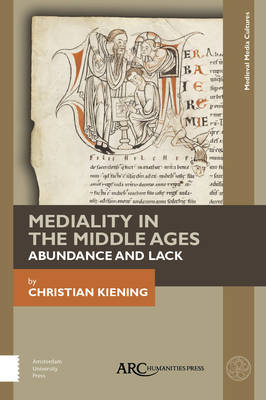
- Afhalen na 1 uur in een winkel met voorraad
- Gratis thuislevering in België vanaf € 30
- Ruim aanbod met 7 miljoen producten
- Afhalen na 1 uur in een winkel met voorraad
- Gratis thuislevering in België vanaf € 30
- Ruim aanbod met 7 miljoen producten
Zoeken
Omschrijving
This book presents, for the first time, a coherent, tightly argued history of medieval mediality, which also casts a new light on modern thinking about the medial. Abundance and lack constitute the defining feature of all media forms. These forms always undertake to preserve, transmit, or give access to something that might otherwise be lost, or remain inaccessible or ineffective. But at the same time they are always in danger of disguising or distorting what they are referring to, or of missing their target altogether. Medieval culture offers an excellent chance to observe this. In this culture, media forms were places of mediated immediacy. They transported a presence of the divine, but also knowledge of its unattainability. This volume investigates the multi-layered and fascinating approaches of medieval authors to the word and writing, the body and materiality, and their experimentation with the possibilities of media before the concept was invented.
Specificaties
Betrokkenen
- Auteur(s):
- Vertaler(s):
- Uitgeverij:
Inhoud
- Aantal bladzijden:
- 336
- Taal:
- Engels
- Reeks:
Eigenschappen
- Productcode (EAN):
- 9781641890755
- Verschijningsdatum:
- 31/12/2019
- Uitvoering:
- Hardcover
- Formaat:
- Genaaid
- Afmetingen:
- 160 mm x 236 mm
- Gewicht:
- 616 g

Alleen bij Standaard Boekhandel
+ 441 punten op je klantenkaart van Standaard Boekhandel
Beoordelingen
We publiceren alleen reviews die voldoen aan de voorwaarden voor reviews. Bekijk onze voorwaarden voor reviews.











